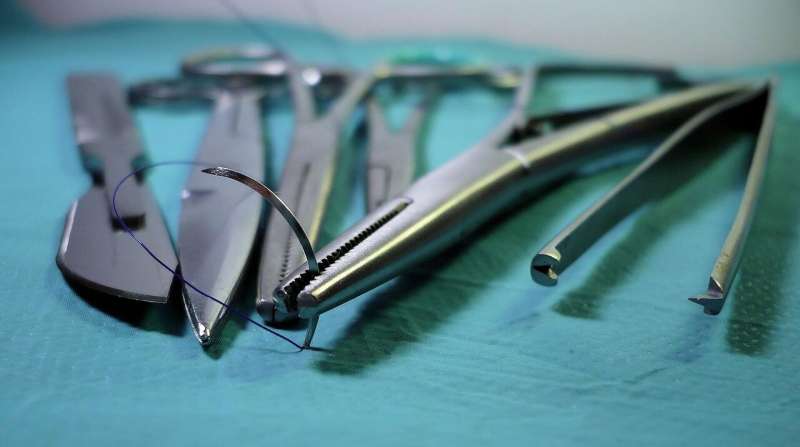Surgical backlogs from COVID-19 persist and could have serious health care consequences going forward

Reductions in many types of surgical procedures precipitated by SARS-CoV-2 have not fully recovered to their pre-pandemic levels, resulting in severe backlogs and deferred surgeries that could have serious health care and cost implications for the future, a study by Massachusetts General Hospital (MGH) has found.
In a new multi-specialty study in JAMA Network Open, researchers reported that subspecialities experiencing the greatest declines in volume through 2021 were surgical oncology, cardiac, urology, orthopedic, and general surgery, and in terms of classes of surgery, urgent and elective procedures failed to make significant recoveries.
"We've seen inconsistent recovery rates in surgical procedures across subspecialities and case classes, which could mean growing morbidity and death rates going forward, along with higher costs to hospitals and the health care system," says Marc Succi, MD, an attending radiologist at MGH and senior author of the study.
"This reduction in surgeries beyond the initial mandated period may reflect downstream effects of other specialties, like radiology, which serve as a referral base for surgical services. This is particularly true for high-risk oncology patients and underscores how intertwined medical service lines can be, and how much a collaborative approach is needed to achieve continuity of patient care."
In the wake of the COVID-19 outbreak in early 2019, many institutions followed the U.S. government's recommendation to defer nonessential surgical care. MGH rapidly triaged nonemergent surgeries and reduced operating room capacity to 17% of its pre-pandemic level, a move that allowed staffing and personal protective equipment to be redirected to caring for the soaring numbers of COVID-19 patients.
In efforts to determine how surgical volumes have changed since then, MGH investigators analyzed nearly 130,000 surgical procedures at their tertiary care hospital from January 6, 2019, to December 31, 2021, according to surgical subspecialities and "case class," which includes elective, emergent, nonurgent, and urgent procedures.
The results were further defined by surgical recoveries in the post-COVID period (from 2019 to 2020) and in the period following the release of vaccines (2021).
"We found a full recovery of nonurgent procedure volumes during the post-vaccine period, but that overall surgical volumes remained significantly lower than pre-COVID levels," notes co-author Keith Lillemoe, MD, surgeon-in-chief and chief of the Department of Surgery, MGH.
"Our study and others have also indicated that COVID-19 likely caused the deferral of millions of elective procedures nationwide, suggesting large backlogs of case volumes and more advanced disease states and poorer outcomes for patients when they finally get treated."
MGH researchers believe hospitals and the healthcare system can learn a great deal from the findings of their study, the first to examine the association of COVID-19 with surgical care two years after the first wave of the pandemic, which significantly includes the post-vaccination period. Above all, they stress that a better understanding of how institutional policy changes are associated with surgical procedure volumes can help to guide and shape the optimal response by hospitals to future outbreaks.
"At Mass General, leaders took a stepwise or phased approach to dramatically reducing nonemergent surgeries at the peak of the pandemic, as well as in reopening our operating rooms when the crisis subsided—a process that worked very well," explains Succi. "Hospitals need to thoughtfully and strategically consider which surgical subspecialties and classes of surgery to defer or not to defer in response to the next viral outbreak, realizing those decisions could have a profound impact on the health and survival of their patients later on."
More information: Soham Ghoshal et al, Institutional Surgical Response and Associated Volume Trends Throughout the COVID-19 Pandemic and Postvaccination Recovery Period, JAMA Network Open (2022). DOI: 10.1001/jamanetworkopen.2022.27443 , dx.doi.org/10.1001/jamanetworkopen.2022.27443




















